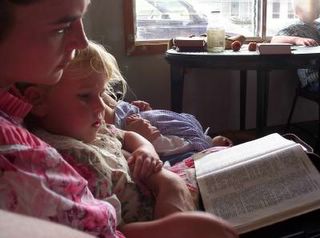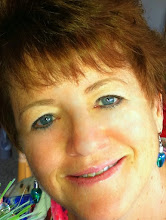
The long road to paradise
Hilo a city of refuge to some
By Karen Welsh
Give Me Your Tired
They come from Ukraine
Your Poor
Russia
Your Huddled Masses
Kazakhstan
Yearning to Breathe Free...
Uzbekistan and Kyrgyzstan.
I lift my lamp beside the golden door.
They are the new immigrants. The wretched refuse, the homeless, tempest-tossed that poet Emma Lazarus wrote about in 1883 and found inscribed on the base of the Statue of Liberty.
Only these refugees have traveled halfway around the world and somehow managed to land in a strange and distant land. It is East Hawaii's teeming shore.
Although they come from what are now considered many separate countries once known as the United Soviet Socialist Republic, they are inexplicitly bound together as one because of their faith in God.
They are are bonded by the Russian language, their native tongue learned while growing up and living in harsh conditions under a dictatorships and communist rule.
Collectively these 14 adults and 16 children meet together each Sunday afternoon at 1 p.m. at Kinoole Baptist Church to fellowship with one another, share scripture words of encouragement, songs, prayers and their cherished freedom to express their faith.
Mothers wearing brightly colored scarves as a sign of respect and headship to their husbands sit and rock their little ones as the service begins. Despite a bit of wiggling, the older children sit quietly and listen, singing with loud, pure voices and praying at the appropriate times.
"How good and pleasant it is when brothers live together in unity!," Pavel Zagumennyy read from Psalm 133:1 in the Cyrillic Russian Bible.
"It is good when we are together in communication," the congregation joined together in a capella, singing in their mother tongue. "We connect in one praise."
Hilo resident and Kinoole Baptist Church member Anuhea Young is one of a few regular attendees who speak English as their primary language. It doesn't seem to matter anyone to the Russians because they've adopted their new homeland's phrase "e komo mai," meaning "everyone is welcome."
She said the language barrier doesn't stop her from trying to fit in with her newfound brothers and sisters in Christ.
"I'm beginning to learn Russian," Young said. "Even though we come from different churches, we are all one body. I come to share God's love with them."
This interactive service is open and peaceful, a far stretch from the underground church most grew up in the communist Soviet Union.
Pavel, now 34, vividly remembers his Christian family struggling behind the Iron Curtain in Slovanski, Ukraine, as the KGB tormented and tortured his family because of their religion.
"The KGB viewed my father as an enemy because he was a Christian," he said. "They wanted to destroy my father. My dad was fired from his job because of the KGB, but the company he worked for kept hiring him back because he was a good, hard worker."
When the KGB's plans failed to demoralize his father, Pavel said they tried to kill the Godly man instead.
Once they poisoned his father, and when that didn't work, he said the KGB hired someone to kill him. Another time, Pavel said they tried to carbon monoxide poison him while he was riding in a car.
Each and every time the evil plans were thwarted, he said.
It was also a common practice, Pavel said, for the KGB to bring Christians to the hospital for a minor ailment, then inject them with poison. It happened to his grandmother and his father vowed it wouldn't happen to any other member of the family.
"We had to stay away from the hospital," he said. "They hated christians. They hated any kind of religion. If a Christian went to the hospital, they'd give them a shot and kill them. Everything happened like an accident. They made it look like an accident and the KGB always gave a story, but they were just trying to get rid of the christians."
When the KGB's efforts didn't work against Pavel's father, he said they came up with a new tactic, telling the head of the household if he brought his kids to church they would turn around and put the children in jail.
The KGB made good on their promise when they jailed his oldest brother. Pavel's father finally had enough.
"My father said, 'I don't want to fight this satan anymore,'" Pavel recalled. "We need to get out of this country. We were listening to a Russian speaking preacher from America at the time and my father said, 'I think America is a good country -- a religious country. We will go there.'"
Pavel's father's resolve began a 14 year process that would lead to more torture for the family. During that time the KGB worked hard to disgrace and defame his family in the community, but it never worked.
"My father wanted to go to this America and we became more of an enemy to the USSR," he said in his halting English. "We are actually like the pioneers that go to America. No one in our town thinks to go to America before that."
The officials finally gave up on the Zagumennyy family in 1989 and allowed them to leave for the United States. With the help of a sponsoring family, Pavel's mother, father, brothers and sisters settled in Portland, Oregon.
At that point, he said the family had to rely heavily on the faith that sustained them through many hard years to make it through the difficult transition period ahead of them.
"We were refugees," Pavel said. "We did not come to this land for money. We came for freedom. But, we were like a baby -- born again. We didn't know how to speak the language. We didn't know the culture. Only God could help us."
Despite a lack of understanding, Pavel said the doors miraculously opened each step of the way.
He quickly went to work on a fishing vessel in Alaska, then joined the construction force in Portland. One job took him to Florida, were he found the warm climate delightful. When Pavel returned to Oregon, he told other Russian comrades in the community that he wanted to move.
"My friends said, 'If you like Florida so much, why don't you go look at Hawaii,'" he said. "So we did."
And, Pavel said, they immediately felt the spirit of aloha.
"The people here are very friendly," he said. "Everyone is so welcoming. We love the weather and the land. You stick something in the ground and it grows. This is a wonderful place. We have everything here."
For three years Pavel searched for land so he could build a farm. He finally found a 12 acre track of ocean view property in Lapahoehoe. He is currently building a home on the property.
Pavel's dad will never see the finished product, because his health broke down from the many bad years he suffered in Ukraine and he passed away recently in Hilo.
"My dad died in paradise," Pavel said. "He died in paradise going to paradise."
For Vladimir and Liya Krasovsky, the move from Uzbekistan to Hawaii started when Liya's father felt the need to leave the country.
"My father was always talking about coming to America," she said. "It was always inside him to come and he began to pray about it. When God opened the door, my father said God 'God wants to take us out because Russian Christians will be persecuted more and more."
This leap of faith landed the couple in Sacramento, California before working their way to Hilo five years ago to join Liya's sister, Nadia and family.
Now they have plans to make the island their home forever.
"This is nice," Liya said. "This is God."
"We really like everything here," Vladimir added. "The people and nature. There's so many blessings here. I would never have this perfect plan. Everything is so prepared and happening at the right time. God is the one who provided every step of the way. We're amazed. This is just better --trusting God."



0 Comments:
Post a Comment
<< Home